Can You Appeal a Personal Injury Case Verdict When and How to Try Again
In an ever-evolving legal landscape, the ability to appeal a personal injury case verdict can be a double-edged sword. This article delves into the complex procedure of filing an appeal, the strategic role of negotiations and settlements, and the crucial factors that determine case worth.
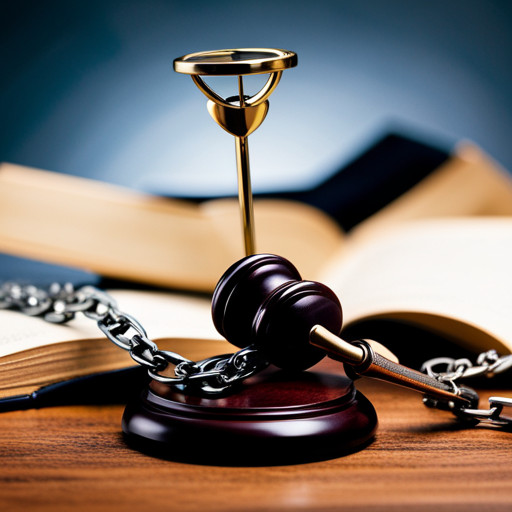
It further underscores the indispensable role of legal representation during appeals and sheds light on the possibility of reopening a case.
Key Takeaways
- Filing an appeal is an option if not satisfied with the verdict in a personal injury case.
- Limited time to file an appeal, usually within 30 days.
- The appeal must be made due to errors in lower court proceedings, such as improper evidence exclusion.
- Working with an attorney experienced in the state's appellate process is crucial for the appeals process.
Understanding the Basics of Filing an Appeal

In the event of dissatisfaction with a personal injury case verdict, filing an appeal is a viable option. This entails a request for a higher court to amend or overturn the decision. Typically, this must be done within a 30-day timeframe and is predicated on the existence of procedural errors in the lower court proceedings.
Common mistakes in the appeals process include failing to meet the strict deadline, inadequate presentation of the grounds for appeal, and lack of a comprehensive record of the initial trial. These errors can impede the successful pursuit of an appeal.
Hence, strategies for building a strong appeal case involve meticulous preparation. This includes diligent identification of procedural errors and the construction of a compelling argument based on these errors. Engaging expert counsel experienced in appellate proceedings is advisable to navigate the complex and demanding appeals process.
The Role of Negotiations and Settlements in Avoiding Appeals

Negotiations and settlements play a critical role in avoiding the often lengthy and complicated process of appeals, with defense law firms potentially attempting to reach an agreement during trial breaks. The strategy utilised during settlement negotiations can significantly influence the outcome, often requiring a delicate balance between assertiveness and compromise. Insurance companies play a significant role in these negotiations, often applying pressure through the threat of an appeal. Understanding this dynamic is essential for formulating effective negotiation strategies and ensuring a fair settlement.
| Settlement Negotiation Factors | Defense Strategies | Role of Insurance Companies |
|---|---|---|
| Predicted Verdict | Settlement during trial breaks | Threat of appeal |
| Strength of Case | Balance of assertiveness and compromise | Influence on negotiation strategy |
| Attorney's Experience | Judgement on settlement acceptance | Pressure on plaintiff |
| Potential Verdict | Risk analysis of continuing trial | Financial influence |
| Insurance Company Influence | Bargaining tool utilization | Impact on final settlement |
Determining the Worth of Your Case: Key Factors to Consider

Determining the worth of a legal claim involves consideration of several key factors, including:
- The type of accident
- The date of the incident
- Fault determination
- The severity of physical injuries suffered
- The potential need for ongoing medical treatment or time off work
Understanding compensation involves evaluating damages, which include:
- General Damages: Pain and suffering, loss of enjoyment of life, and physical impairment
- Special Damages: Out-of-pocket expenses like medical bills and lost wages
It's vital to meticulously document these factors as they significantly influence the claim's worth.
Additionally, the strength of evidence and credibility of witnesses may also affect the potential compensation. Therefore, strategic planning and thorough preparation can significantly enhance the chances of a favorable verdict or settlement.
The Importance of Legal Representation During Appeals
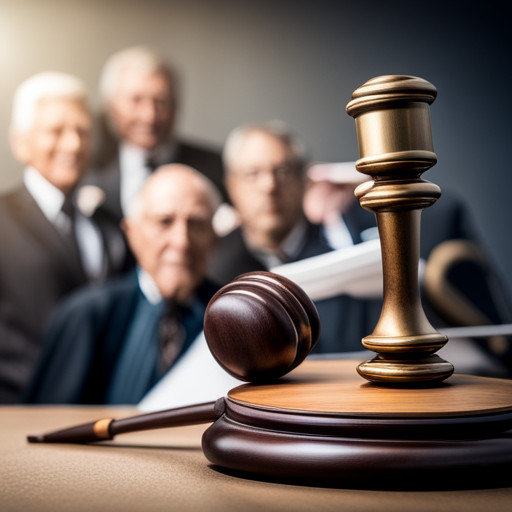
Engaging proficient legal representation during the appeals process is crucial, given the different set of skills required for appellate court proceedings.
The role of attorneys in the appeals process involves in-depth knowledge of procedural rules, persuasive writing abilities, and mastery in the art of oral argumentation. These skills may differ substantially from those needed during trial proceedings.
Therefore, attorneys experienced in appellate court cases are indispensable in this process. Their vast knowledge and detailed understanding of legal principles, case law, and court rulings are instrumental in formulating compelling arguments.
Hence, the importance of experience in appellate court cases cannot be overstated. This underscores the need for competent legal representation during appeals, as decisions made at this stage have far-reaching implications for litigants.
The Possibility of Reopening a Case: What You Need to Know
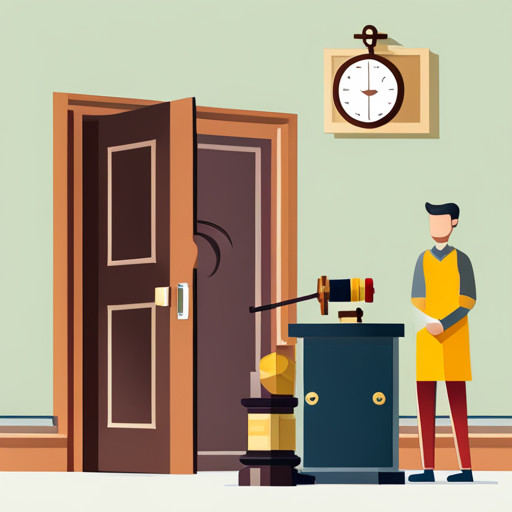
The prospect of reopening a litigation matter is subject to numerous factors, including the potential for compelling new evidence or the existence of a substantial error in the initial proceedings. Reasons for reopening a settlement might stem from an understanding that the original agreement was not just or equitable.
* Compelling New Evidence
* Discovery of new witnesses or documents
* Evidence previously deemed inadmissible that now meets legal criteria
* Substantial Errors
* Incorrect application of law
* Misinterpretation of facts
Reopening a settlement requires a thorough analytical review of the initial proceedings, and the detailed identification of persuasive reasons for a court to reconsider its decision. If granted, this might result in a more favourable outcome for the party seeking to reopen the case.
Can a Personal Injury Case Verdict Be Appealed
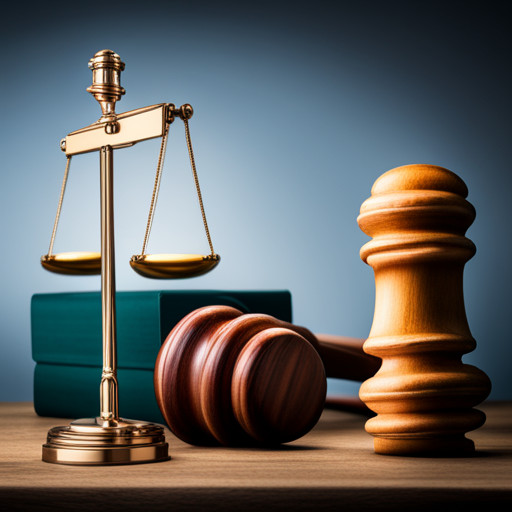
It is feasible to challenge the outcome of a tort lawsuit in a higher court, if one is dissatisfied with the judgement. This process, known as appealing a settlement, involves scrutiny of the lower court's proceedings for possible legal errors.
However, this action is not undertaken lightly as it carries potential financial risks, including responsibility for the appellee's fees if the appeal is dismissed. Despite these risks, if there is a substantial belief that the judgement was erroneous, reopening a personal injury case could be a viable option.
The decision to embark on this path should be made with careful consideration and strategic consultation with an attorney well-versed in the state's appellate process. The timing and precise procedure for this appeal are crucial elements that require meticulous attention.
The Timing and Procedure for Appealing a Settlement: A Detailed Overview
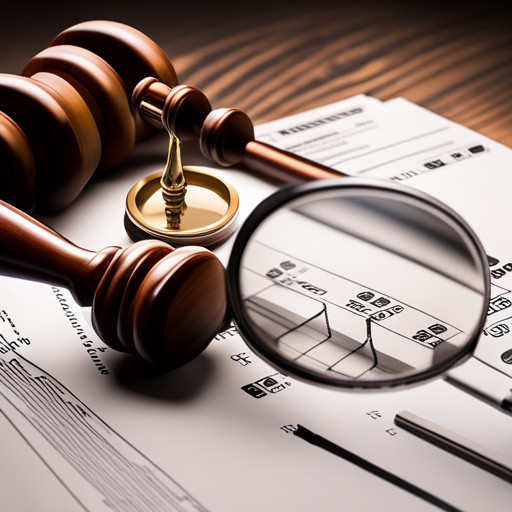
Understanding the timing and precise procedure for challenging a settlement is critical, as these elements can greatly influence the outcome of the appeal.
Importance of Timing
An appeal must be filed within a specific period, usually within 30 days from the decision. Delay can result in forfeiture of the right to appeal.
Prompt filing allows for proper preparation and thorough review of the case records.
Procedure for Appealing a Settlement
The process begins with the filing of a notice of appeal.
Subsequently, records and evidence from the trial court are prepared and submitted.
Oral arguments may be presented before the appellate judges.
Understanding these factors and their implications is crucial.
The success of an appeal can hinge on the correct procedure and the importance of timing.
Frequently Asked Questions
What Happens if the Appeal Process Is Successful?
If the appeal process is successful, the appellate court may reverse the original verdict. This could result in a new trial or an adjustment of the awarded damages. The appeal timeline, which typically spans several months, concludes with this final decision.
Grounds for appeal are a crucial determinant of success; they must convincingly argue that legal errors significantly impacted the case's initial outcome. The success of an appeal, however, does not guarantee a favorable outcome in subsequent proceedings.
Are There Specific Types of Personal Injury Cases That Are More Likely to Be Appealed?
The frequency of appeals in various personal injury cases often varies, influenced by several factors.
How often are complex cases likely to be appealed? Certainly, the complexity of a case can increase the likelihood of an appeal due to potential errors or misinterpretations during trial proceedings.
Consequently, more intricate cases such as medical malpractice or product liability tend to have a higher rate of appeals compared to straightforward cases like slip-and-fall accidents.
Can Both Parties in a Personal Injury Case File an Appeal or Only the Losing Party?
In personal injury cases, both parties possess the right to appeal the verdict. However, the initiation of an appeal, which involves additional legal representation and consequential appeal costs, is typically pursued by the party unsatisfied with the court's decision.
The appeal procedure is a complex process requiring specialized legal expertise, thereby increasing the financial implications. Therefore, an appeal is often considered the last resort, primarily undertaken when the perceived error in the trial proceedings significantly impacts the outcome.
How Can One Prepare for the Possibility of an Appeal During the Initial Trial?
Preparation for the possibility of an appeal during the initial trial involves strategic planning. The implementation of appeal strategies begins at the pre-trial preparation stage.
Key components include meticulous record-keeping, anticipating potential errors, and preserving objections for appeal. Detailed documentation of the court proceedings and careful scrutiny of the judge's rulings and jury instructions are essential.
Such rigorous preparation aids in identifying legal errors, which form the basis for a successful appeal.
What Are Some of the Common Reasons Why Personal Injury Case Verdicts Are Appealed?
Appeals of personal injury case verdicts commonly result from perceived verdict misinterpretation and bias influence.
Misinterpretation can occur when legal statutes or case law are allegedly misunderstood or incorrectly applied by the initial court.
Bias influence refers to instances where it is believed that the judge or jury was unduly influenced by extraneous factors, thereby affecting the verdict.
An appeal provides the opportunity to address these concerns before a higher court, striving for an unbiased, accurate interpretation of the law.

This post has been generated by AI and was not reviewed by editors. This is Not legal advice. Please consult with an attorney.




